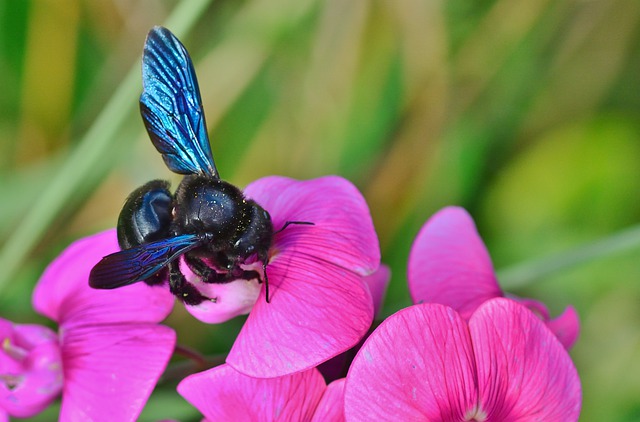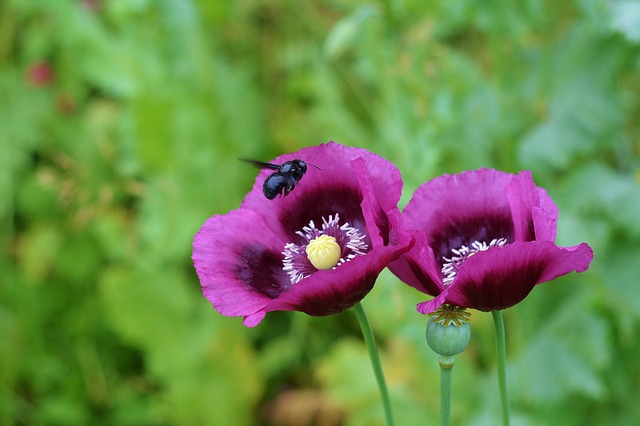Missing since 2016, the blue bee has reappeared in Florida. This solitary insect does not live in hives like other bees, but in individual nests hidden in burrows, hollow stems or dead trees.
What are blue bees ?
There are some unusual species of blue bees that have been discovered in Florida lately after being disappeared. These creatures are rare and they can be very difficult to get at. The best way to preserve these species is through protecting their hives from the elements. Blue Bee Hives is a special class of insect in the insect family called “nectar”, which means that this class has insects that feed off of flowers.
Considered extinct, several blue bees have been discovered in Florida. There are several theories that explain why the blue bees have become extinct in the US. One theory says that mosquitoes could have been the killers. However, scientists say that there is no evidence to support this theory. They think that it might be that the bees died out because of a disease.

Blue bees in the past :
In the last fifty years or so, there has been a pretty remarkable increase in the number of blue species of bees. Therewas an estimated seventeen different species of this insect in the wild. Many of these have colonies that are found on private properties in areas ranging from central Florida all the way to the Keys. Some of these have become so established that they are actually being managed by local extension services.
Interestingly enough, there are some that have even managed to make it to New York City. Unfortunately, the little blue bees that are found there as honey bees are not treated as blue bees in Florida. They are actually considered nuisance insects by the city and are routinely flushed out of the city’s water sources. That does not mean, however, that they cannot be found in other areas of the state, as long as the local wildlife management agencies know where they can be found.
How to find bees ?
The best place to find blue honey bees in Florida is actually on your own backyard. For example, if you have a cleared two acre plot of land in which to grow your own vegetables, then you should be able to find at least five to ten species of bee nesting there. These could include feral bees, European honey bees, wax foundation bees, brown bees, and honey bees with wax foundation. Once you’ve located the bees, removing the bees from the area will be much easier.

How to raise blue bees ?
There are several subspecies of this species. This means that if you plan on raising and caring for these creatures, you must know all about their care requirements and the environment they live in. This is not enough however as it is also important to understand that they have their own predators and they are susceptible to many diseases.
How to keep them away ?
Now that you know how these insects came to be in Florida, you can figure out how to keep them alive in your area. As we said, these insects only do well in the warm weather. This means that if you are in Florida in the summertime, you should make sure you clear your yard of all standing water. If you already have, you might consider using a mosquito misting system to keep these insects away. Other things you can do is to refrain from burning any crops that might have blue bees, such as sunflowers and citrus trees.
The Bee Flop :
The problem that occurs when blue bees are removed from an area is that it creates what is called a “Bee Gusher” in some parts of the state. This is when the excess honey that has been collected by the bees begins to overflow the pails or hives. When this happens, excess water and honey are now in the air and will eventually cause the growth of mold in the areas of the soil and structure beneath the pails. This is known as “The Great Pest Attack”, also known as a Bee Flop. Therefore, removing these bees from an area is often a necessity for avoiding outbreaks of these harmful insects.
See also :









